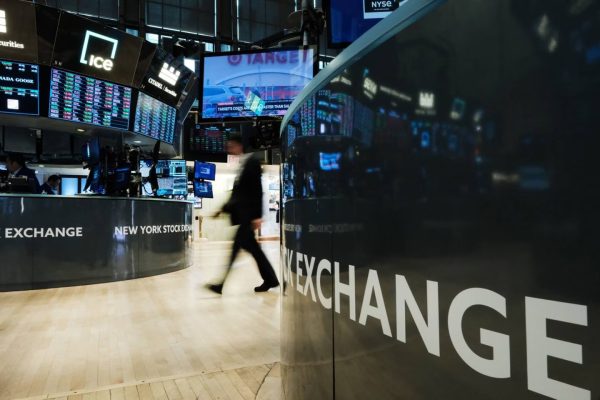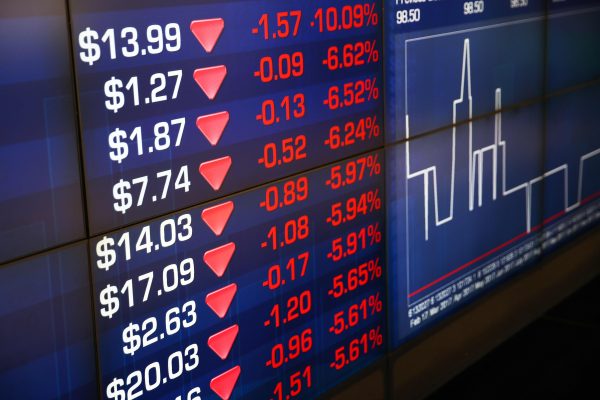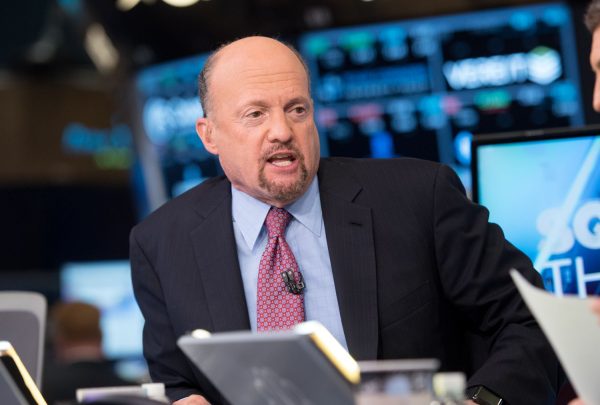On Thursday, US stock futures and Treasuries moved little as investors closely followed speculation about the Federal Reserve’s stance on keeping higher interest rates for an extended period of time. The resulting uncertainty had a ripple effect on global markets, forcing market participants to exercise prudence. Let’s take a closer look at the day’s highlights for a more in-depth review.

The Performance of ASML Holding NV Weighs on Europe's Stoxx 600
ASML Holding NV, a significant European firm, fell 1.2% in the Stoxx 600 index, making it the market’s biggest detractor. As investors analysed the ramifications of the company’s fall, their performance contributed to broader market gloom.
GameStop Corp. Faces Turbulence
In US premarket trading, GameStop Corp. faced significant turbulence, plunging by 20%. The company’s decision to terminate its chief executive, coupled with reported sales figures falling short of estimates, exerted additional pressure on technology stocks with lofty valuations. Investors began reevaluating their positions in the technology sector due to revised expectations surrounding US monetary policy.
Investors Rethink US Monetary Policy Bets
Although many investors believe the Federal Reserve will keep interest rates unchanged in the coming week, recent unexpected interest rate hikes in Australia and Canada have added more uncertainty to the equation. This ambiguity has caused investors to rethink their wagers on US monetary policy, resulting in a more cautious attitude.
Concerns about inflation persist
Concerns about inflation have remained a key topic. Helen Jewell, EMEA deputy CIO of BlackRock Fundamental Equities, emphasized the ongoing battle against inflation and expressed apprehension regarding potential rate hikes. These fears have put pressure on rate-sensitive assets, affecting their market performance.
Rate-Sensitive Assets Face Difficulties
Since early May, the two-year Treasury yield has been slowly rising, reaching a high of roughly 4.6%, the highest since March. This growing trend has substantial ramifications for the technology sector, which has emerged as the S&P 500’s worst-performing industrial group this month. This underperformance is in stark contrast to the sector’s notable 33% gain year to date, highlighting the challenges faced by rate-sensitive assets in the current market environment.
Global Yield Movements amplify Uncertainty
Global yield swings have exacerbated uncertainty. Despite initial anticipation that the Federal Reserve would skip its June meeting, recent hawkish policy updates from the Reserve Bank of Australia (RBA) and the Bank of Canada (BOC) have given global yields a boost. As a result of the probable impact of these changes on their portfolios, investors have become increasingly cautious.
The SBB's collapse exacerbates Sweden's property crisis
Sweden’s property crisis worsened when Samhallsbyggnadsbolaget i Norden AB (SBB), a key actor in the problem, witnessed a 7.4% drop in the Stoxx 600 index. SBB was downgraded deeper into junk territory by S&P Global Ratings, aggravating the company’s serious funding shortage. SBB shares have fallen more than 90% since their peak in late 2021, highlighting the company’s and Sweden’s broader property market’s difficulties.
Slowness and a lack of volatility
Market conditions were characterised by sluggishness and low volatility. The Cboe Volatility Index, a popular indicator of market volatility, has dropped to its lowest level since February 2020. Furthermore, the Euro Stoxx 50 index’s one-month implied volatility has fallen to around its lowest level since 2021, indicating a general lack of market excitement and muted trading activity.
Currency Changes
Following Japan’s stronger-than-expected first-quarter economic growth, the Japanese yen rose in currency markets. In contrast, the Turkish lira stabilised at 23.37 per dollar after state lenders restored support for the currency. The recent unprecedented sell-off in the Turkish currency, spurred by speculation about a potential shift in Turkey’s long-held attitude on state interventions following the nomination of a new finance minister, sparked investor panic.
These developments highlight the complex link that exists between market mood, global issues, and the continued uncertainty regarding interest rates and inflation. Investors continue to tread carefully in the changing landscape, keenly monitoring policy actions and economic factors that may impact future market patterns.




